Gum Disease Treatment – Marysville, OH
Giving Your Teeth a Healthier Home
Gum disease is one of the most common oral health issues, affecting as many as half of all adults in the United States. At its earliest stages, practicing better oral hygiene might be enough to restore your gum health, but once it progresses, you’ll need professional help. At Northwest Family Dental of Marysville, we can stop gum disease in its tracks with personalized periodontal treatment. Call us today or read more below to learn more about your options for gum disease treatment in Marysville!
Why Choose Northwest Family Dental of Marysville for Gum Disease Treatment?
- Nitrous Oxide Available to Soothe Anxiety
- Old-School Customer Service, Modern Technology
- We Prioritize Your Comfort at All Times
What is Gum Disease?
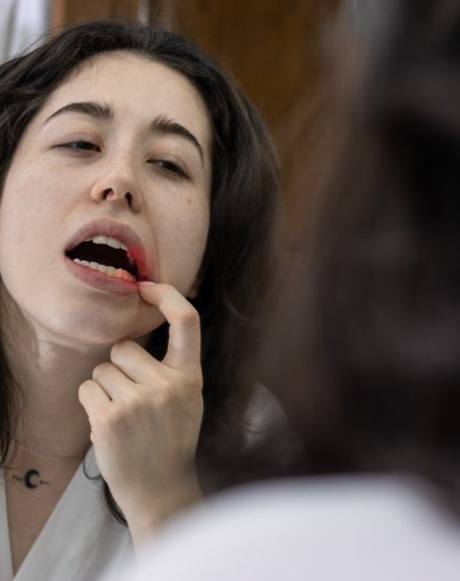
Gum disease, or periodontal disease, is a bacterial infection that affects your gums and the supporting structures of your teeth. It begins as gingivitis, causing mild irritating symptoms, but without treatment it can progress into periodontitis.
This advanced form of gum disease is much more dangerous, often causing gum recession, tooth loss, and greater risk of certain health conditions.
The main cause is plaque buildup, but factors like your diet, smoking, vaping, and genetics can all increase your risk. At our dental office in Marysville, our goal is to catch your condition early and begin treatment as soon as possible to protect your smile.
Symptoms of Gum Disease
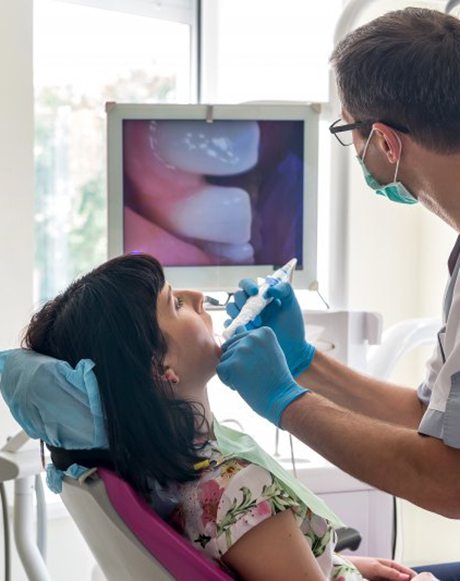
Gum disease often starts with mild symptoms, making it easy to overlook. However, early detection is critical to preventing its advance. Watch for:
- Red, swollen, or tender gums
- Bleeding while brushing or flossing
- Persistent bad breath that doesn’t go away with oral care
- Gum recession (gums pulling away from teeth)
- Tooth sensitivity
- Loose teeth or changes in your bite
If you notice any of these signs, contact our team right away. Early treatment can prevent long-term damage and keep your smile healthy.
How Do We Treat Gum Disease?
We typically treat gum disease with a two-pronged approach of antibiotics and scaling and root planing. However, before we decide how to proceed, it’s best to schedule a consultation with us for a thorough examination. Once we have an understanding of your condition, we can recommend the most appropriate treatment.
Scaling & Root Planing
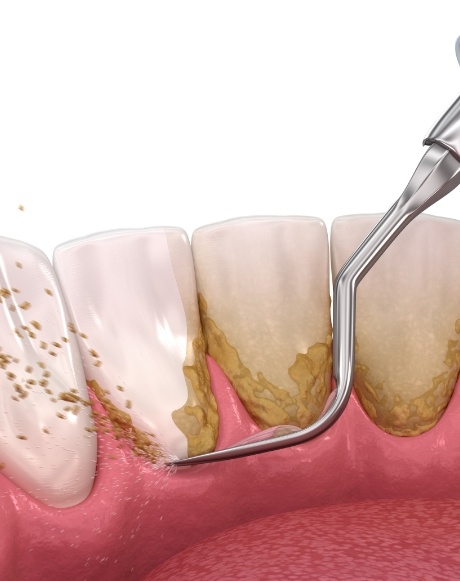
Did you know your gums are just as important to your oral health as your teeth? While tooth decay gets a lot of attention, gum disease (a common and preventable infection) is an equally serious threat. In fact, nearly half of all adults struggle with some form of it, and it remains the leading cause of tooth loss. With treatments like scaling and root planing, we can stop gum disease in its tracks and protect your smile. Click the button below to learn how we can help restore your gum health!
Do I Need Scaling & Root Planing?

Dr. Miller typically recommends scaling and root planing when gum disease has progressed beyond its early stages. If you’re experiencing any of the following symptoms, this treatment may be necessary:
- Bleeding while brushing or flossing
- Receding gums
- Ongoing bad breath or a persistent bad taste
- Teeth that feel loose or are shifting
- Trouble chewing comfortably
- Noticeable plaque or tartar buildup
If you recognize any of these signs, contact our office right away. We’ll carefully examine your gums to determine if scaling and root planing is the best solution. In general, the more advanced the gum infection, the more likely this deep cleaning procedure will be recommended to stop the disease from progressing further.
The Process of Scaling & Root Planing
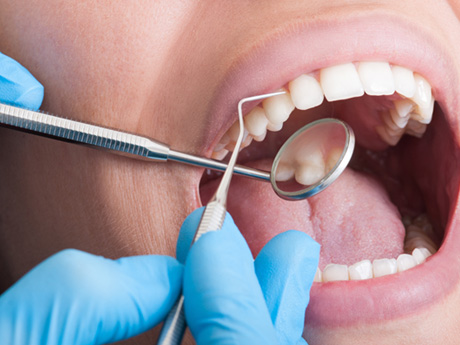
Scaling and root planing is more thorough than a routine cleaning, focusing on areas where bacteria hide below the gumline. The process starts with scaling, where our skilled team uses special tools to carefully remove plaque and tartar buildup, especially in pockets beneath your gums.
Next comes root planing. This step smooths out the roots of your teeth, helping your gums reattach more firmly. Smoother roots also make it harder for bacteria to cling and multiply, lowering your risk of future gum problems.
Aftercare Tips for Scaling & Root Planing

It’s normal to feel some tenderness or mild discomfort for a few days after scaling and root planing. Your teeth might be a bit sensitive, and your gums could be swollen or bleed slightly. To promote healing and prevent infection, we’ll give you detailed aftercare instructions. You may also be prescribed an antibiotic or a special mouthrinse to help with recovery.
To manage any soreness, over-the-counter pain relievers usually work well. Most patients find that within one to two weeks, their gums feel much better and symptoms fade. During this time, it’s best to avoid spicy, very hot, or sharp foods that could irritate your gums while they heal.
Antibiotic Treatment
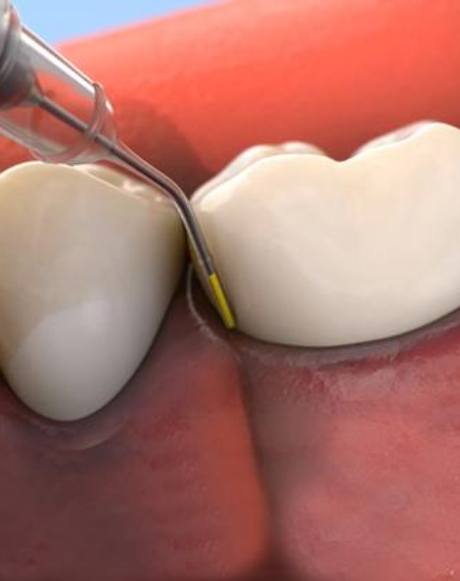
Sometimes, scaling and root planing aren’t quite enough to clear out all of the dangerous bacteria from the deep pockets in your gums. For this reason, we may choose to perform antibiotic therapy in addition to your deep cleaning.
We’ll apply a topical antibacterial medicine, known as Arestin, to your gums. It will begin to spread throughout your gum tissue over the next several days or weeks, eliminating hard-to-reach bacteria along the way.

